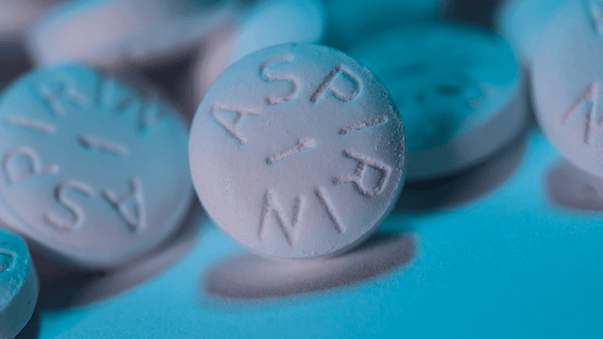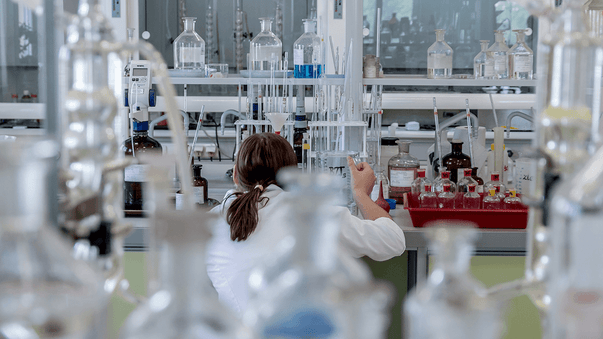Don’t Make Yourself Sick Over Politics

University of Nebraska researchers suggest that we, and in particular people in the US, are making ourselves sick over politics.
"Politics is really negatively affecting a lot of people's lives, or at least, they're perceiving that politics is really negatively affecting their lives in deep and meaningful ways," says research leader Kevin Smith. "Stress is a real phenomenon that can have disastrous health effects. If politics is a significant contributor to the levels of stress that American adults are experiencing, then yeah, it makes sense that there's a real add-on health effect from that."
We see this in social media every day. My own reaction, which I like to see as a small contribution to our collective well-being, is to stay entirely out of the political debate. I do have political opinions like everyone, but I keep them to myself and the voting booth.
My health advice today is, don’t ruin your health arguing over politics with strangers on Facebook.
"Twenty percent have damaged friendships because of political disagreements,” continues Smith. “One in five report fatigue. And it's a small (proportion), but 4% of the people in our sample said they've had suicidal thoughts because of politics. That translates into 10 million adults."
I guess we should make politics boring again.
Some good news is that a natural antioxidant commonly found in green tea can help eliminate antibiotic resistant bacteria. See below for other good news in medicine and human enhancement.
Artificial skin for applications in medical rehabilitation and VR. Scientists at EPFL have developed a soft artificial skin that provides haptic feedback. Thanks to a sophisticated self-sensing mechanism, the artificial skin, described in a research paper published in Soft Robotics, has the potential to instantaneously adapt to a wearer's movements. Applications for the new technology range from medical rehabilitation to virtual reality.
Re-engineered fat cells deliver anti-cancer drugs. Researchers at UC Los Angeles have identified a new drug delivery pathway that may help stop tumor growth and keep cancer from coming back in mice. In a preclinical study published in Matter, the researchers found that they could reengineer adipocytes (fat cells that feed fatty acids energy needed to promote tumor growth and metastasis) to reverse their malignant role in tumor development and deliver cancer-fighting drugs directly to the tumor microenvironment.
Light activates cancer-killing iridium compound. Scientists led by University of Warwick have developed a technique that uses light to activate a cancer-killing compound of iridium, which attacks a vital energy source in cancer cells even under hypoxia (oxygen deficiency due to poor blood supplies), significantly opening up the range of cancers that can be treated using the technique. The new technique, detailed in a paper published in Nature Chemistry, could lead to another tool for clinicians to use in the fight against cancer, and potentially even vaccinate patients against future cancers.
Versatile nanomaterials enable non-viral, bio-inspired gene delivery. Researchers at RMIT University have developed a non-viral, bio-inspired gene delivery method, which has proven effective in laboratory tests and is safer than standard viral approaches. The new gene delivery method, described in a research paper published in Small, uses Metal Organic Frameworks (MOFs), incredibly versatile and super porous nanomaterials that can be used to store, separate, release or protect almost any biomolecule. According to the researchers, the new method promises to speed up gene therapy research and could bring new patient-friendly cancer treatments to market faster.
Engineered invariant natural killer T (iNKT) cells for cancer immunotherapy. In experiments with mice, researchers at UC Los Angeles have shown they can harness the power of invariant natural killer T cells (iNKT cells) to attack tumor cells and treat cancer. One advantage of this approach is that it's a one-time cell therapy that can provide patients with a lifelong supply of iNKT cells. The researchers genetically engineered stem cells so that they were programmed to develop into iNKT cells.The new method, described in a study published in Cell Stem Cell, suppressed the growth of multiple types of human tumors that had been transplanted into the animals.
CRISPR and tiny biomagnets enable faster drug discovery. Scientists at University of Toronto have developed a new platform that brings together CRISPR genome editing with magnetic cell sorting to reveal new drug targets for cancer and regenerative medicine. The scientists used tiny biomagnets engineered to bind to target proteins. The new platform, called MICS (microfluidic cell sorting), is described in a study published in Nature Biomedical Engineering. MICS is expected to enable researchers to scour the human genome faster when searching for genes, and their protein products, that can be targeted by drugs.
More Articles
Don't miss a beat! In our Pulse Newsletter, Thrivous curates the most important news on health science and human enhancement, so you can stay informed without wasting time on hype and trivia. It's part of the free Thrivous newsletter. Subscribe now to receive email about human enhancement, nootropics, and geroprotectors, as well as company news and deals.
Read more articles at Thrivous, the human enhancement company. You can browse recent articles in Thrivous Views. See other Pulse Newsletter articles. Or check out an article below.
-
Daily Aspirin. Yes or No?
Researchers at Columbia, Harvard, and Boston University have reported evidence that nonsteroidal anti-inflammatory drugs (NSAIDs) like aspirin may lessen the ...
-
Engineered Bacteria Produce Low Cost Drugs
Bacteria are commonly used to produce biologics, which are products like vaccines, gene therapies, and proteins that are created or ...


